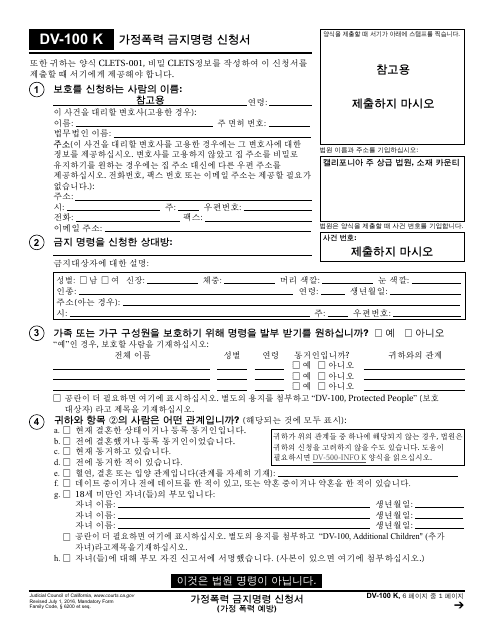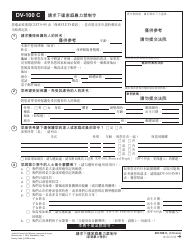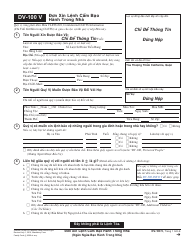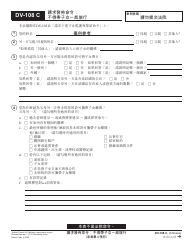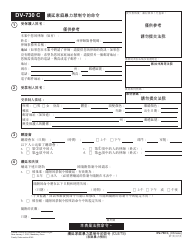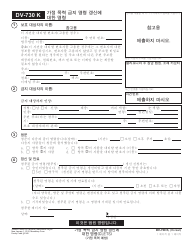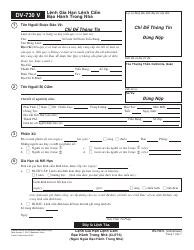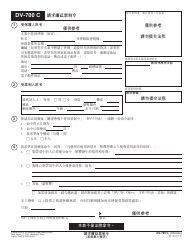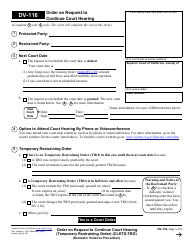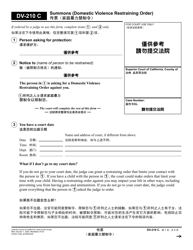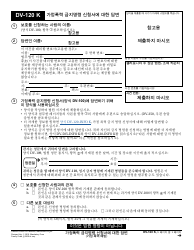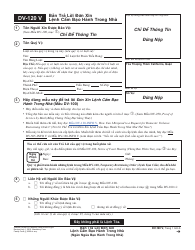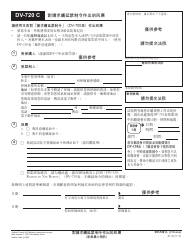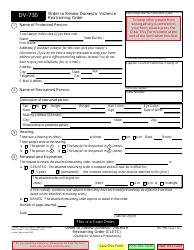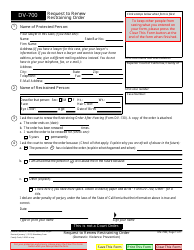Form DV-100 K Request for Domestic Violence Restraining Order - California (Korean)
This is a legal form that was released by the California Superior Court - a government authority operating within California.
The document is provided in Korean. As of today, no separate filing guidelines for the form are provided by the issuing department.
FAQ
Q: What is Form DV-100 K?
A: Form DV-100 K is a request form for a Domestic Violence Restraining Order in California, available in Korean.
Q: Who can use Form DV-100 K?
A: Anyone who needs to apply for a Domestic Violence Restraining Order in California and speaks Korean can use Form DV-100 K.
Q: What is a Domestic Violence Restraining Order?
A: A Domestic Violence Restraining Order is a legal order issued by a court to protect someone from abuse or harassment by a family or household member.
Q: What information is required on Form DV-100 K?
A: Form DV-100 K requires information about the person seeking protection, the person to be restrained, and details about the alleged abuse or harassment.
Q: How do I fill out Form DV-100 K?
A: You should carefully read and follow the instructions on Form DV-100 K. Provide accurate and complete information in the required fields.
Q: Do I need to provide evidence of the abuse or harassment?
A: It is helpful to provide any evidence or documentation you have that supports your request, such as police reports, medical records, or witness statements.
Q: What happens after I file Form DV-100 K?
A: After you file Form DV-100 K, a judge will review your application and may schedule a hearing to determine whether to grant a restraining order.
Q: Is there a fee to file Form DV-100 K?
A: There may be a filing fee to submit Form DV-100 K, but if you cannot afford the fee, you can request a fee waiver.
Q: Can I get legal help with Form DV-100 K?
A: Yes, if you need legal assistance with Form DV-100 K or the restraining order process, you can seek help from a domestic violence service provider or an attorney.
Form Details:
- Released on July 1, 2016;
- The latest edition provided by the California Superior Court;
- Easy to use and ready to print;
- Quick to customize;
- Compatible with most PDF-viewing applications;
Download a fillable version of Form DV-100 K by clicking the link below or browse more documents and templates provided by the California Superior Court.
